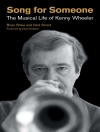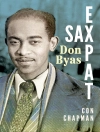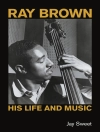Brassroots Democracy recasts the birth of jazz, unearthing vibrant narratives of New Orleans musicians to reveal how early jazz was inextricably tied to the mass mobilization of freedpeople during Reconstruction and the decades that followed. Benjamin Barson presents a ‘music history from below, ‘ following the musicians as they built communes, performed at Civil Rights rallies, and participated in general strikes. Perhaps most importantly, Barson locates the first emancipatory revolution in the Americas—Haiti—as a nexus for cultural and political change in nineteenth-century Louisiana. In dialogue with the work of recent historians who have inverted traditional histories of Latin American and Caribbean independence by centering the influence of Haitian activists abroad, this work traces the impact of Haitian culture in New Orleans and its legacy in movements for liberation.
Brassroots Democracy demonstrates how Black musicians infused participatory music practice with innovative forms of grassroots democracy. Late nineteenth-century Black brass bands and activists rehearsed these participatory models through collective performance that embodied the democratic ethos of Black Reconstruction. Termed ‘Brassroots Democracy, ‘ this fusion of political and musical spheres revolutionized both. Brassroots Democracy illuminates the Black Atlantic struggles that informed music-as-world-making from the Haitian Revolution through Reconstruction to the jazz revolution. The work theorizes the roots of the New Orleans brass band tradition in the social relations grown in maroon ecologies across the Americas. Their fruits contributed to the socio-sonic commons of the music we call jazz today.
Зміст
Acknowledgements • Introduction: A Long Song from Haiti • Chapter 1: The Common Wind’s • Second Gale, the Desdunes Family • Chapter 2: Mamie Desdunes in the Neo-Plantation: Legacies of Black Feminism among Storyville’s Blues People • Chapter 3: La Frontera Sónica and the Mexican Revolutions in Borderlands Jazz • Chapter 4. Black Atlantic Ecologies: Afro-Caribbean Ecosocialism in Louisiana’s Sugar Parishes • Chapter 5: Black Reconstruction and Brassroots Democracy • Conclusion: Telegrams from Spiritual Plane • Bibliography
Про автора
BENJAMIN BARSON is a historian, baritone saxophonist, and political activist. He is an assistant professor of music at Bucknell University. His work emphasizes ‘music history from below’ and has been published in English, Spanish, and Portuguese-language journals and several edited collections. He is a former Fulbright scholar to Mexico and has been an artist-in-residence at the University of Wisconsin and UConn-Storrs. Also a composer, he is the recipient of the 2018 Johnny Mandel Prize from the ASCAP Foundation and has performed at a wide range of venues ranging from the Kennedy Center in Washington D.C. to the Centro Cultural de Tijuana (CECUT). He has released two CDs as a bandleader and has composed music for several staged works. Barson, disturbed by the incredible oppression and ecological destructivity wrought by racial capitalism, employs a compositional practice that draws from the deep well of revolutionary musicians within the jazz tradition.












